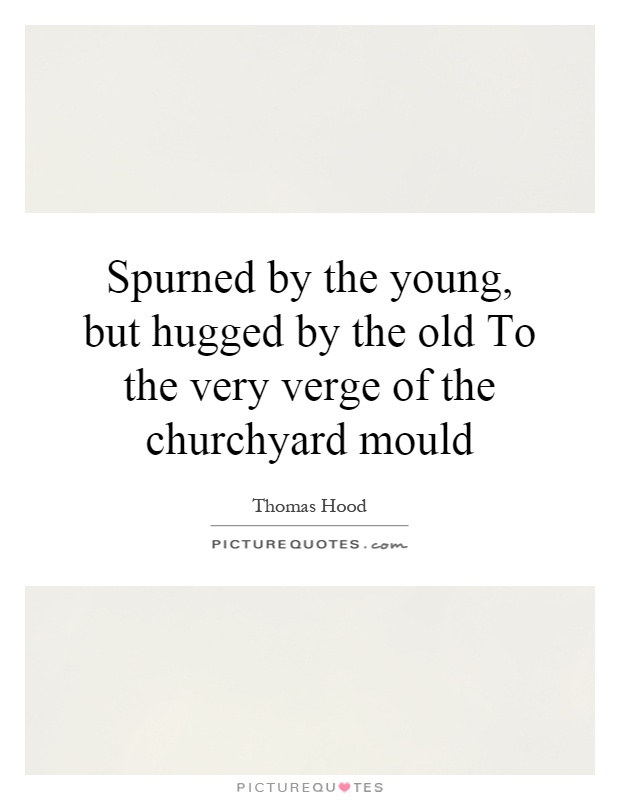Spurned by the young, but hugged by the old To the very verge of the churchyard mould

Spurned by the young, but hugged by the old To the very verge of the churchyard mould
Thomas Hood was a renowned English poet and humorist who was known for his witty and satirical works. One of his most famous poems, "The Song of the Shirt," highlighted the plight of the working class in Victorian England. However, Hood also had a talent for capturing the complexities of human emotions and relationships in his poetry.The line "Spurned by the young, but hugged by the old To the very verge of the churchyard mould" from Hood's poem "The Bridge of Sighs" speaks to the idea of how people's attitudes towards us can change as we age. In the poem, the protagonist is a young woman who is rejected and abandoned by her lover, leading her to a life of poverty and despair. Despite her hardships, she finds solace and comfort in the kindness of the elderly, who offer her compassion and support in her time of need.
This theme of the young rejecting and the old embracing is a common motif in Hood's work, reflecting his observations of human nature and society. In Victorian England, youth and beauty were highly valued, while age and infirmity were often seen as burdensome and undesirable. However, Hood challenges these societal norms by highlighting the wisdom, empathy, and kindness that can be found in the elderly.
The image of being "hugged by the old to the very verge of the churchyard mould" is a poignant reminder of the inevitability of death and the fleeting nature of life. The churchyard mould symbolizes the end of one's journey on earth, but also the enduring power of love and compassion. Despite the hardships and injustices of the world, Hood suggests that there is still hope and comfort to be found in the kindness of others, especially in the later stages of life.
Overall, the line "Spurned by the young, but hugged by the old To the very verge of the churchyard mould" encapsulates the themes of love, loss, and redemption that are prevalent in Thomas Hood's poetry. It serves as a reminder of the importance of empathy, understanding, and connection in a world that can often be cold and indifferent.












 Friendship Quotes
Friendship Quotes Love Quotes
Love Quotes Life Quotes
Life Quotes Funny Quotes
Funny Quotes Motivational Quotes
Motivational Quotes Inspirational Quotes
Inspirational Quotes